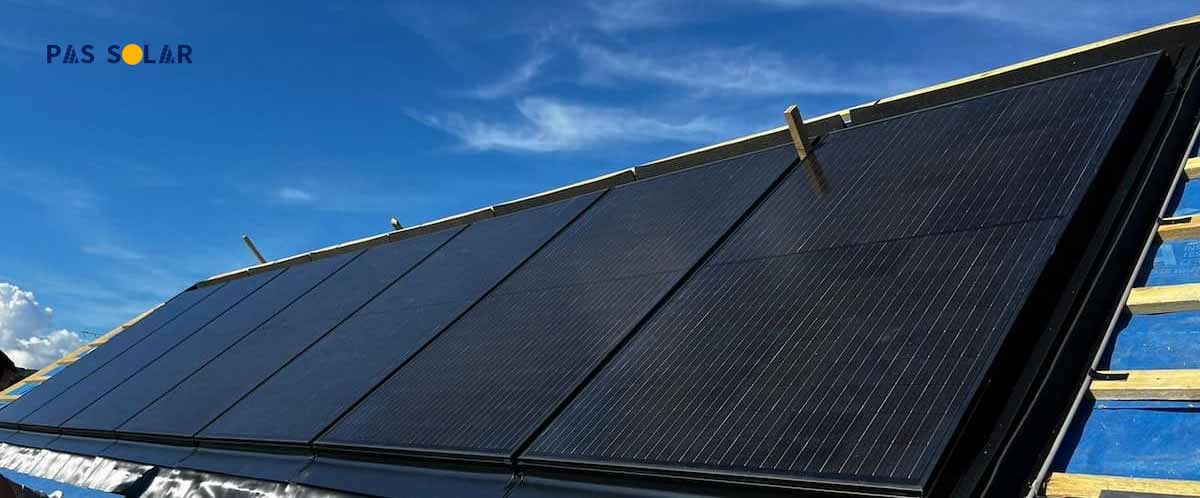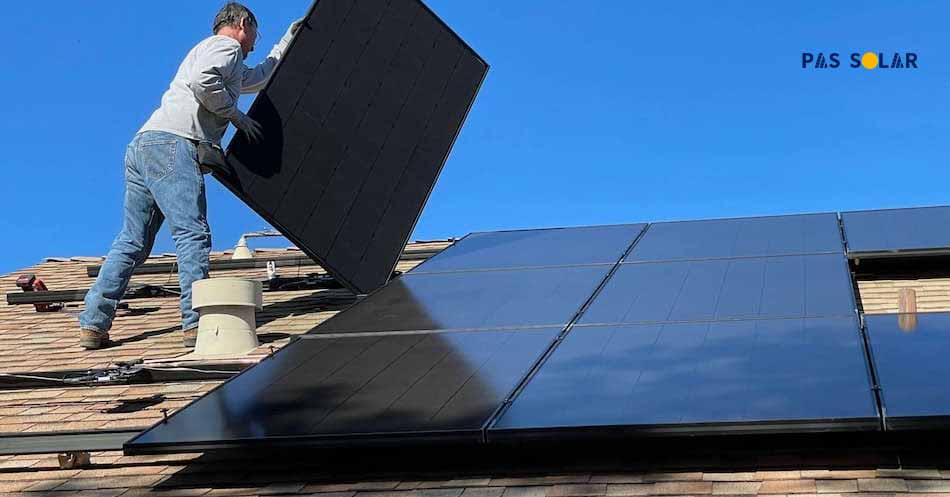If you’re considering going solar to power your home, the environmental benefits and long-term cost savings are good incentives. But as you dig into your solar energy research, you may find another nice benefit of using solar panels: With solar net metering, homeowners can sell unused energy generated by their panels to the public. This can help further offset the cost of installing solar panels and can lower monthly utility bills.
Net metering solar system policies vary based on local regulations, as well as utility company policies. If your home is located in an area with a net metering program, you should be able to sell excess electricity to the utility during peak solar generation hours. You can then receive a credit to use if you need grid-based electricity, such as during the darker winter months, when your solar power system may not cover all your electricity needs.
Definition of net metering
Also known as net energy metering (or NEM), solar net metering is a way for people who privately own solar panels like the Longi solar panels UAE to deliver excess power to the power grid. This can reduce demand on the power grid, spread the environmental benefits of solar power to a larger number of people, and save money for the solar panel owner.
Net metering lets you use unused electricity. While solar panel batteries allow homeowners to save energy until they need to use them, net metering allows the homeowner to share power with the community.
One misconception about a solar net metering system is that you can get paid for energy. That’s not exactly the case: if you send power to the power company, they’re unlikely to pay you by check. Rather, your electricity meter will go back when you’re sending electricity back into the grid, and forward when you’re using electricity. This results in significantly lower or even non-existent electricity bills.
How does solar net metering work?
To use net metering, you must be connected to the grid, which is the case for most solar users. This is because even with a highly efficient solar power system, nighttime hours, cloudy days, and the darker winter months mean your system will not be able to continuously generate electricity. During these times, you will likely need to draw electricity from the grid.
But, with net metering, you can sell excess electricity back to the grid during those peak power generation times. Then you are only charged for the net amount of electricity your home uses.
How to get started with net metering
If you’re interested in using solar net metering to reduce your utility bills, the first step is to determine if you live in an area that supports net metering, and most likely you do. Even in regions that do not require net metering, some major utilities still offer the option to solar users.
If you want to know your community’s policies on net metering, contact the best solar companies in your area and contact your utility company to confirm their program details. When your solar panel in UAE is in place, and you’re connected to the grid, getting started with net metering should be pretty straightforward.
Advantages of solar net metering
Perhaps the biggest benefit of solar net metering is the potential cost savings for homeowners using solar panels. But surely there are other advantages, such as:
Reduce your demand on the network
When you use your solar power system instead of the grid, there’s less to draw from non-renewable energy sources. That can make the local network more stable and environmentally friendly. Plus, because the power is generated locally, you’re further helping the environment by reducing the carbon footprint that comes from transporting those non-renewable energy sources into the community from somewhere else.
Lower the amount you pay for utility bills
As you become aware of the energy you are using, you can become more aware of it. Good electricity management on your part can help the environment and lower your utility bills.
Reduce your recovery period
Solar net metering programs make the prospect of investing in the best solar panels much more attractive to homeowners because they can drastically reduce monthly bills. As a result, you should be able to recoup your initial investment in solar panels much sooner than if you didn’t take advantage of a solar panel net metering program.
For example, the average payback period for standard residential solar panels in New Jersey is four to five years; conversely, the payback period in a region with no net metering policies could be longer than 10 years.
Cons of net metering
Requires Network Connection
Because net metering relies on a connection to the utility company, and you pay with credit instead of cash, you won’t be a candidate for solar net metering if you’re completely off-grid. In this case, you’ll need to invest in a solar power battery to privately store your excess power for use overnight or during other times when the system isn’t generating electricity.
Not available everywhere
Although most regions now require solar power net metering, some do not. Before assuming, you can use net metering, check local regulations, consult with a solar installer, and confirm the process with your utility provider. Unfortunately, there can be a pullback with net metering for some utilities because it can reduce your profits.
They don’t pay you
This is worth repeating because it is a common misconception with solar net metering. However, unless you invest in a solar-powered battery, you will sometimes need to use power from the grid. So, while you may not get money to put into your bank account from net metering, you won’t have to take as much out of that bank account to pay the bills.
In this article we had the solar net metering explained to you and hope that now you are equipped with all the knowledge required to choose the right solar net metering system for your home. If you are left with any questions, do not hesitate to contact Pas Solar. Pas Solar is a major solar shop in middle east.





